Although Americans and Brits both speak english, there are tons of confusing British phrases, words, and slang that have unique meanings. Here are the ones you should know.
30 British Phrases That Always Confuse Americans
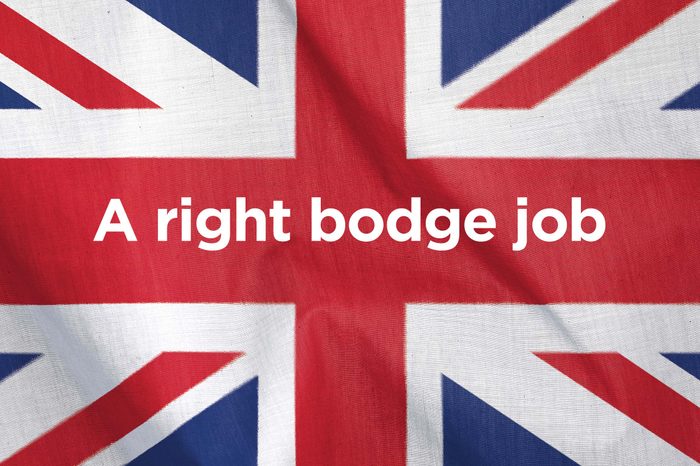
“A right bodge job”
This is one those British phrases that refers to something someone has done poorly. Make sure you memorize these phrases before going abroad!
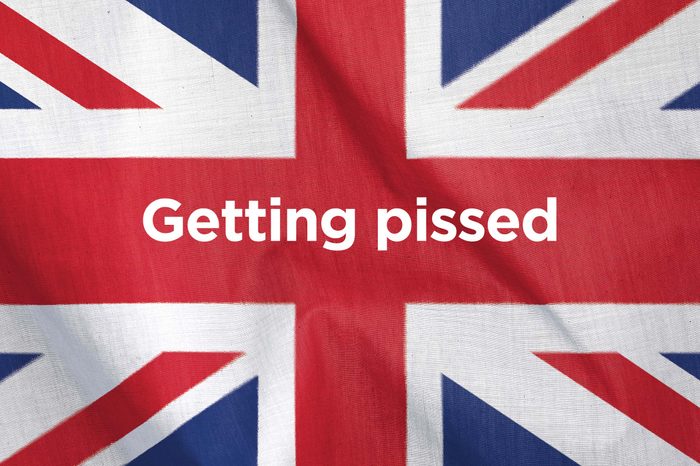
“Getting pissed”
This British slang phrase means getting drunk. In the U.S., “getting pissed” on the road is much more acceptable than it is in the U.K. This is why Europeans drive manual instead of automatic.
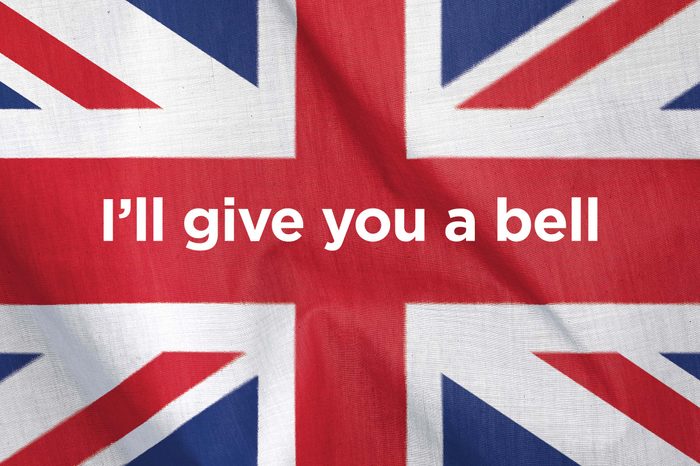
“I’ll give you a bell”
This means you will call someone on the phone later. It has nothing to do with an actual bell!
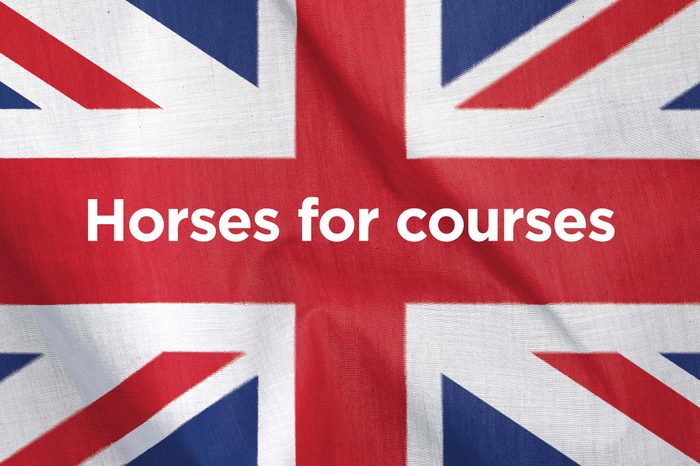
“Horses for courses”
This phrase essentially means different people like or are made for different things.
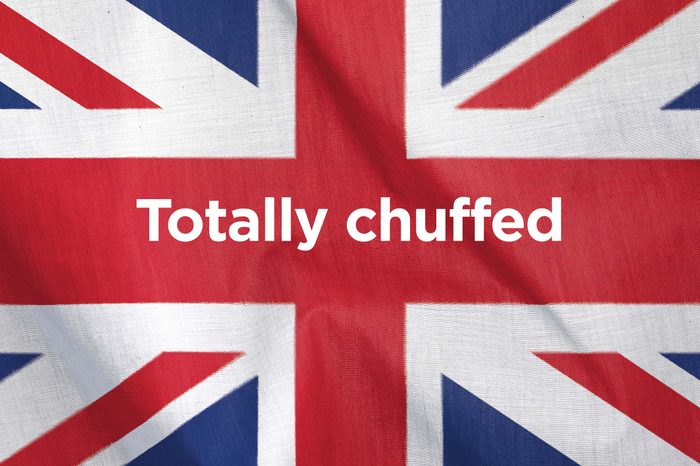
“Totally chuffed”
At first glance, you might assume this means being worn out or tired. But it actually means pleased or thrilled!
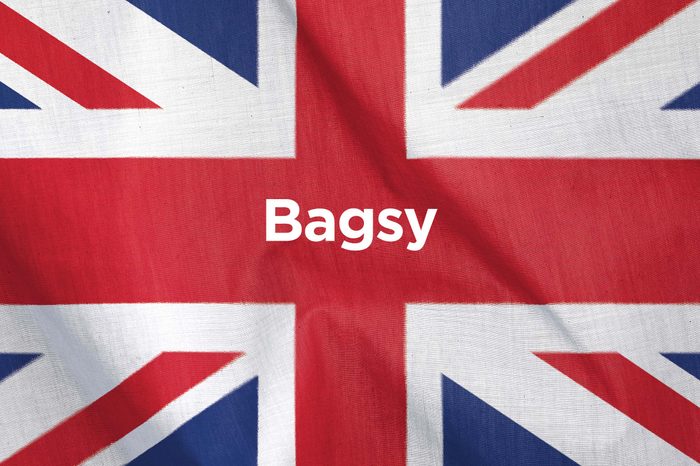
“Bagsy!”
This British saying is equal to calling “shotgun” or securing something for oneself.
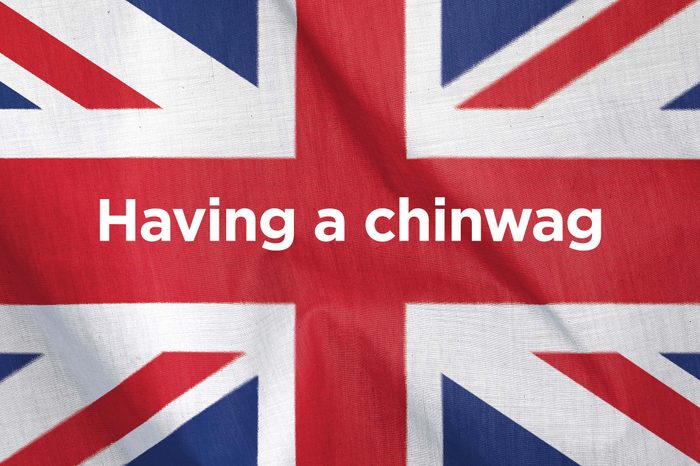
“Having a chinwag”
Having a chat or a talk is the same as “having a chinwag”—which makes sense since our mouths move when we speak!
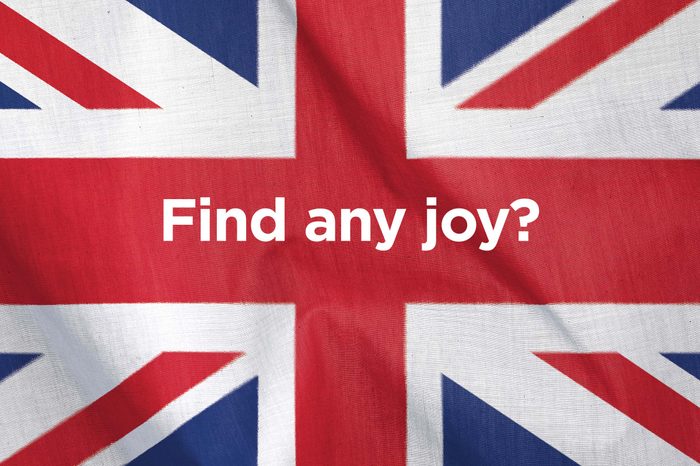
“Find any joy?”
This informal British phrase is similar to saying, “have you had any luck?”
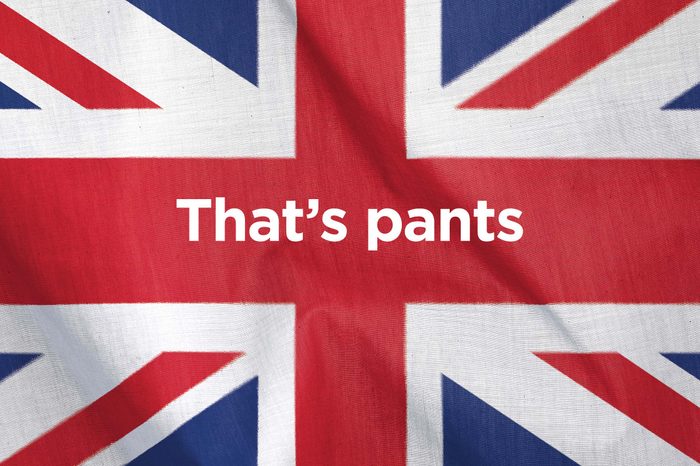
“That’s pants!”
Brits use this phrase when something is nonsense. Here are the origins of commonly used phrases.
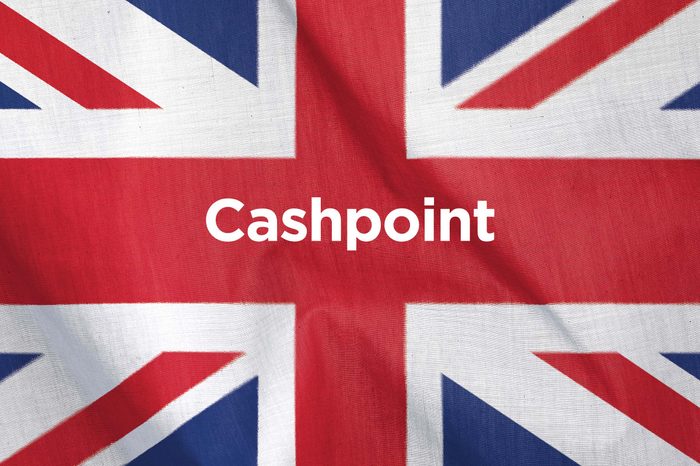
“Cashpoint”
This is another term for an ATM!
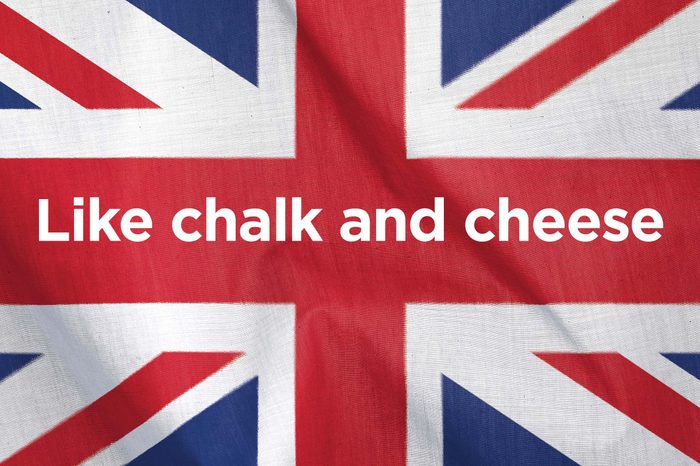
“Like chalk and cheese”
This British phrase means two people or things are fundamentally different or incompatible.
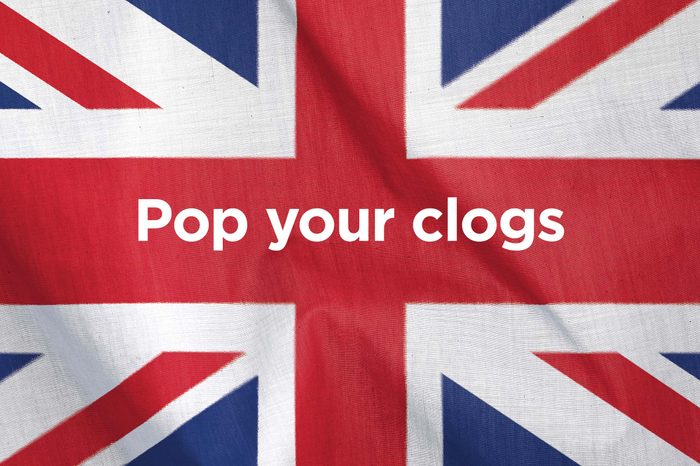
“Pop your clogs”
Nope, this doesn’t have anything to do with shoe wear. This phrase actually means to die.
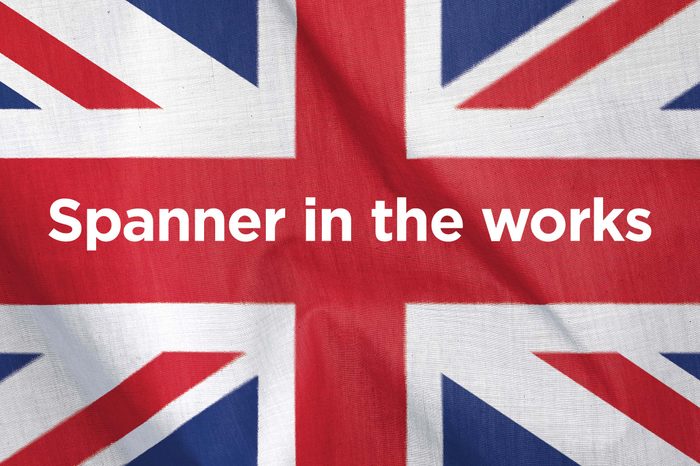
“Spanner in the works”
To have a “spanner in the works” means someone or something messed up the plan.
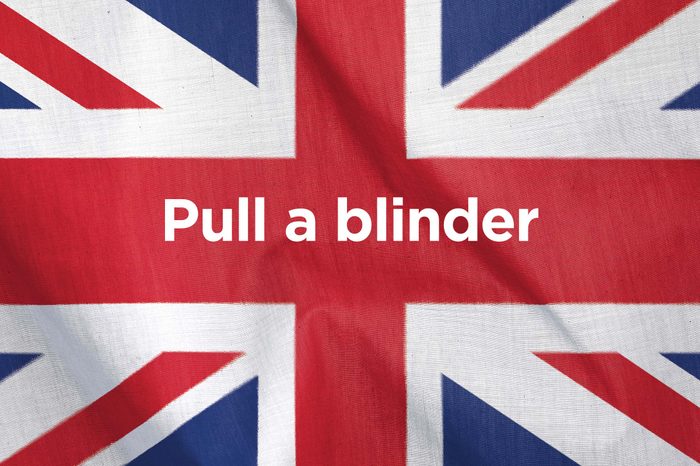
“Pull a blinder”
This means to do something skillfully or give an excellent performance.
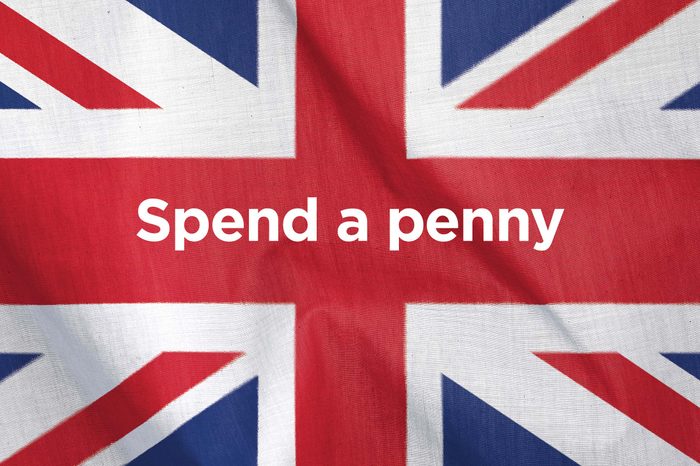
“Spend a penny”
This is another way of saying you need to use the bathroom.
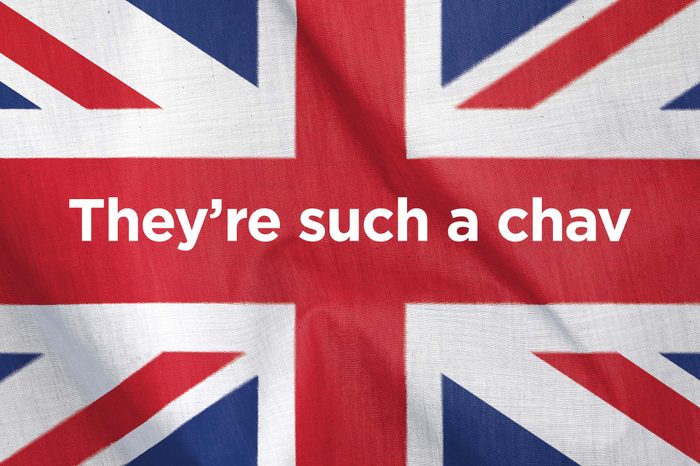
“They’re such a chav”
This informal (and somewhat derogatory) saying refers to someone who is brash, low-class, or cheap.
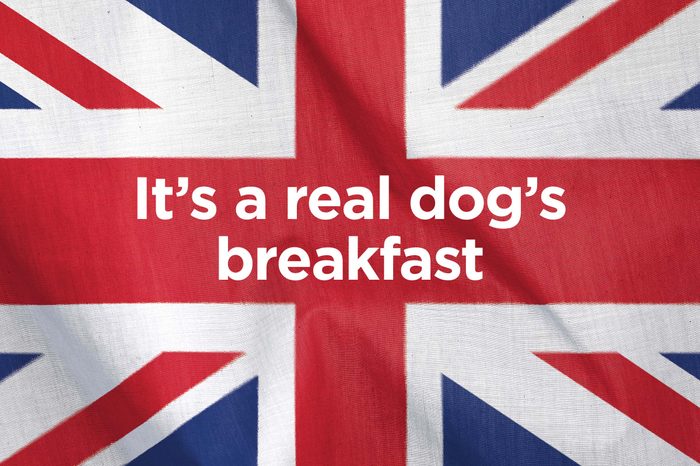
“It’s a real dog’s breakfast”
Some people say dinner instead of breakfast, but the meaning is still the same. A “dog’s breakfast” is a mess! Find out the 14 foods you didn’t know were called by different names in the United Kingdom.
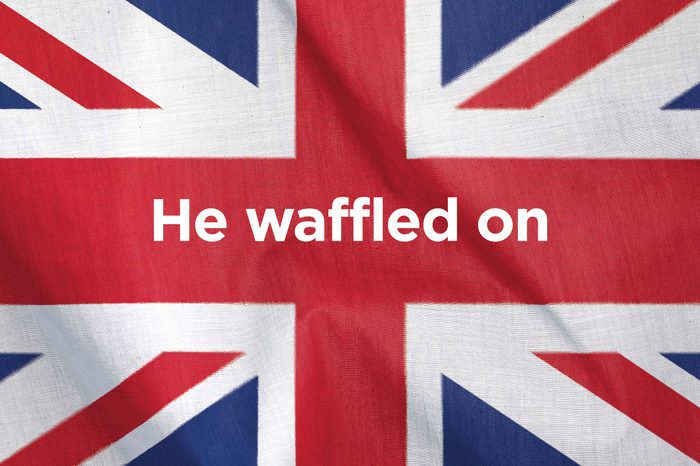
“He waffled on”
This informal British phrase means to speak or write in a long, vague, or trivial manner. It’s almost equivalent to dilly-dallying in American English.
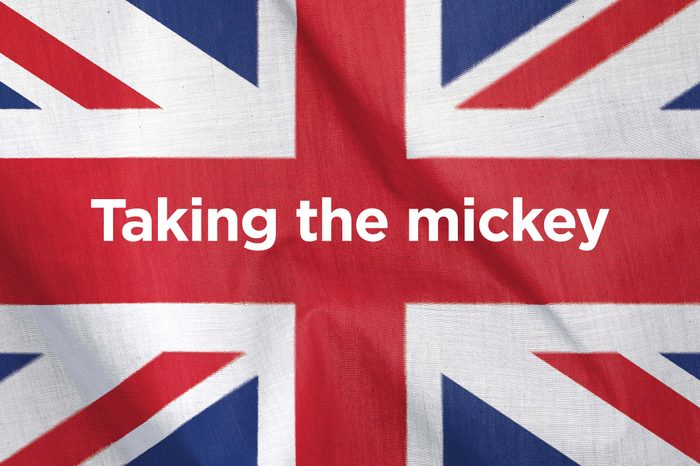
“Taking the mickey”
“Taking the mickey” means to make fun or someone or something. Don’t miss these annoying phrases you probably use without thinking.
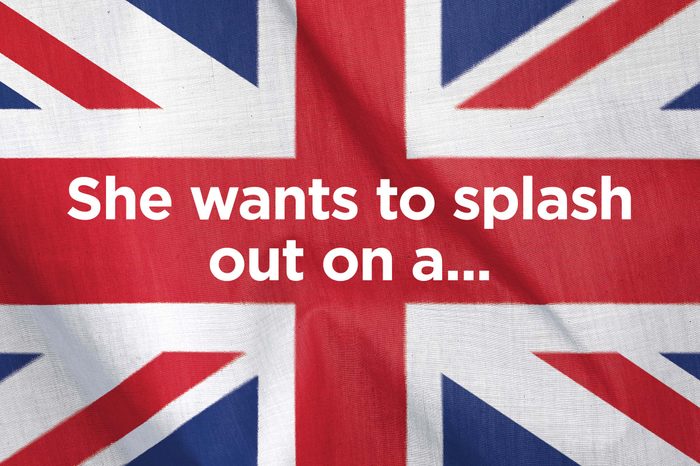
“She wants to splash out on a …”
“Splashing out” means spending lots of money on a luxury item.
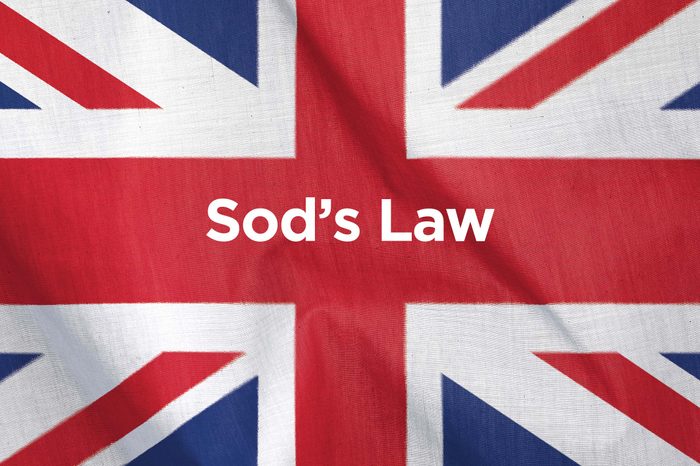
“Sod’s Law”
The Brits use the saying “Sod’s Law” to explain back luck or misfortune. It’s the British version of Murphy’s Law.
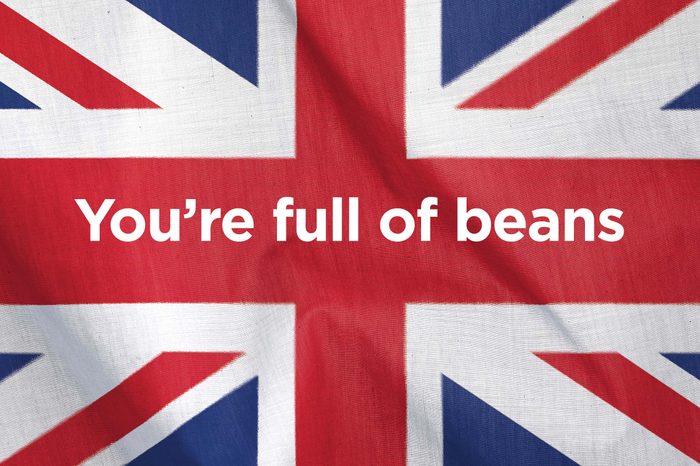
“You’re full of beans”
Again, this saying has nothing to do with consuming beans. It really means to be in high spirits. Check out these 10 words that mean very different things in America and in England.
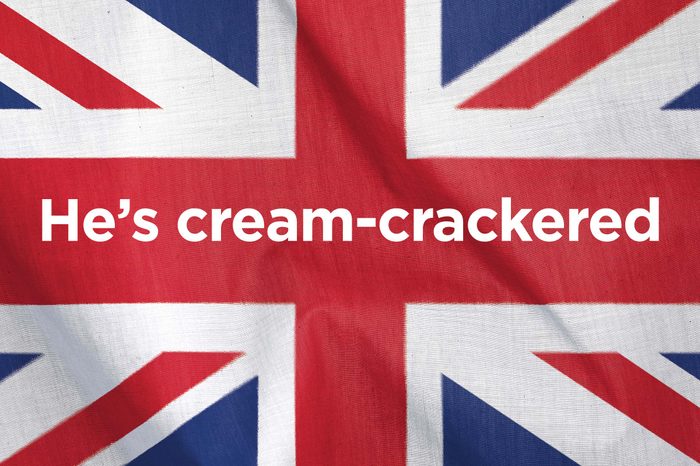
“He’s cream-crackered”
This slang comes from the British word “knackered” meaning to be extremely tired.
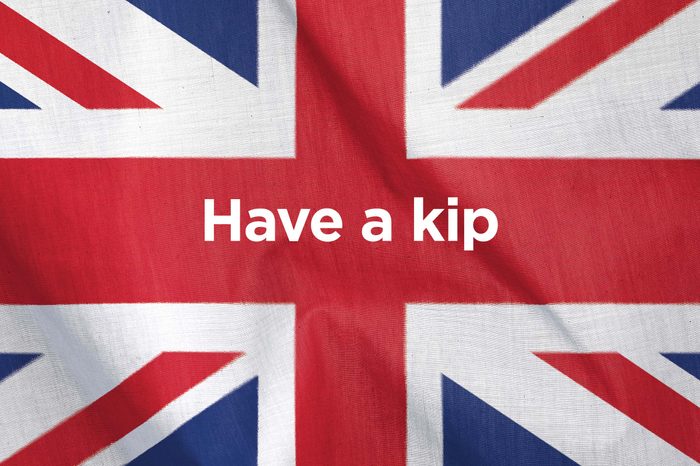
“Have a kip”
British people use “kip” instead of nap. Make sure you aren’t using these instant conversation killers.
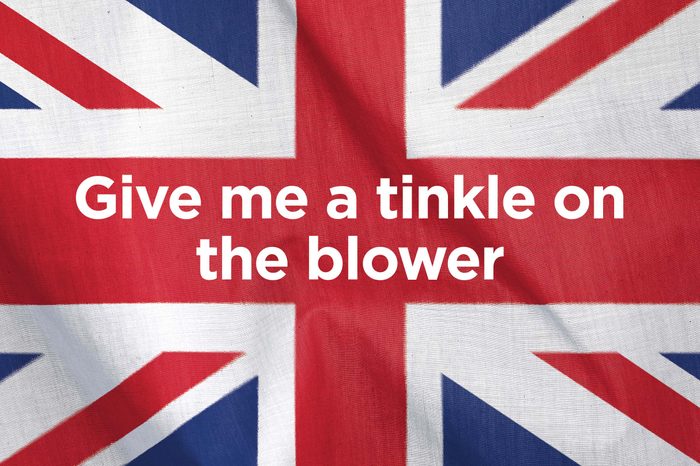
“Give me a tinkle on the blower”
This phrase refers to calling someone.
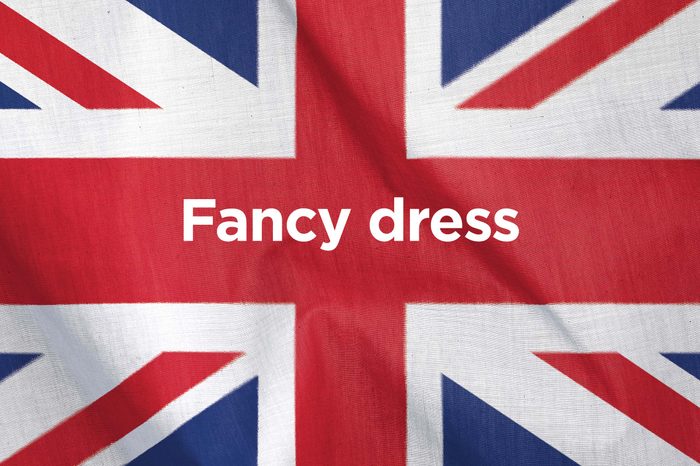
“Fancy dress”
This is how the British say costume! Don’t miss these other popular British phrases everyone should know.
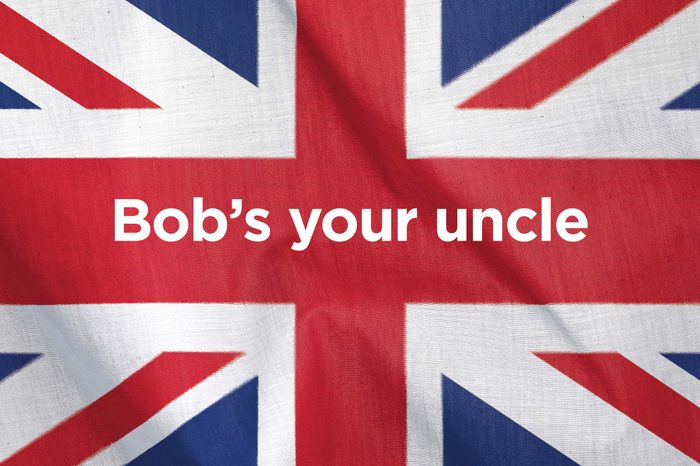
“Bob’s your uncle”
This saying has nothing to do with your family tree. It’s an exclamation used when everything is alright, or you’re all set.
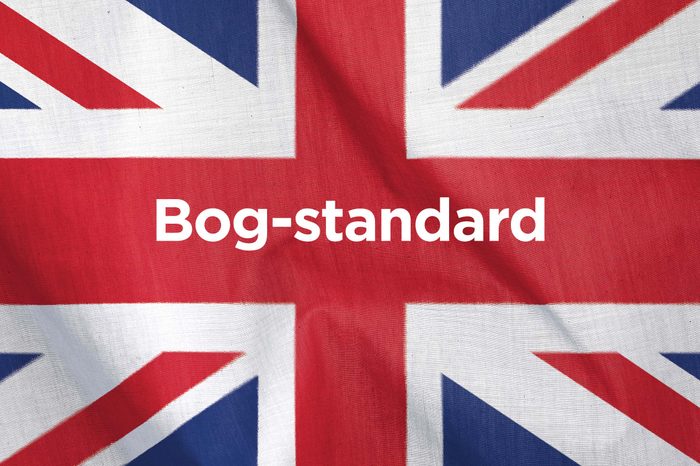
“Bog-standard”
When something is “bog-standard,” it is the bare minimum or ordinary.
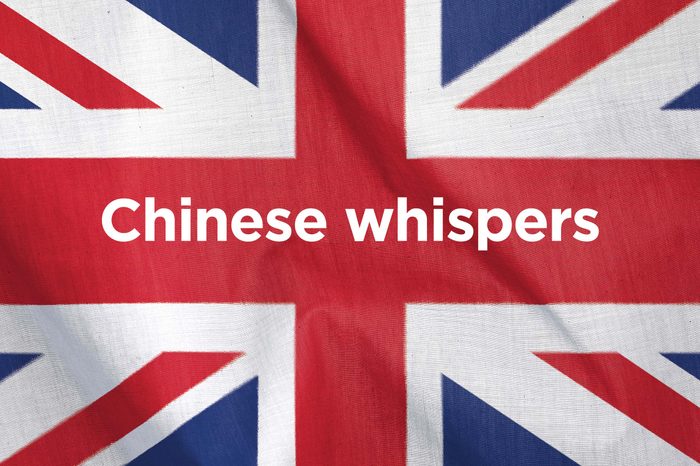
“Chinese whispers”
This is one of those British phrases that means there are untrue rumors circulating a group.
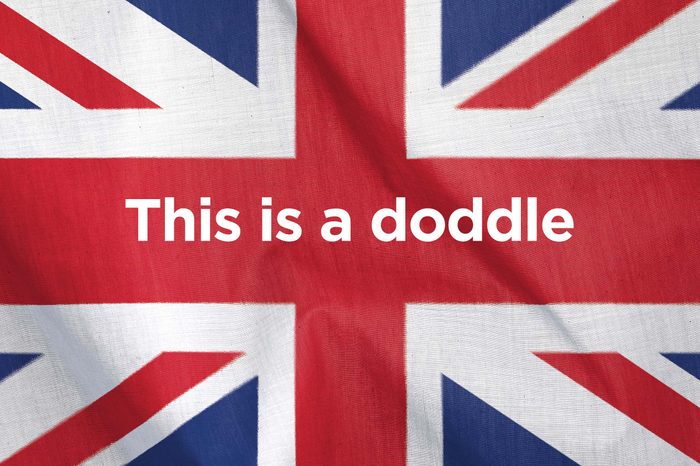
“This is a doddle”
A “doddle” is a simple task. Next, check out the words and phrases you are probably using all wrong.
[Source: Oxford University Press, The Evening Standard]




















